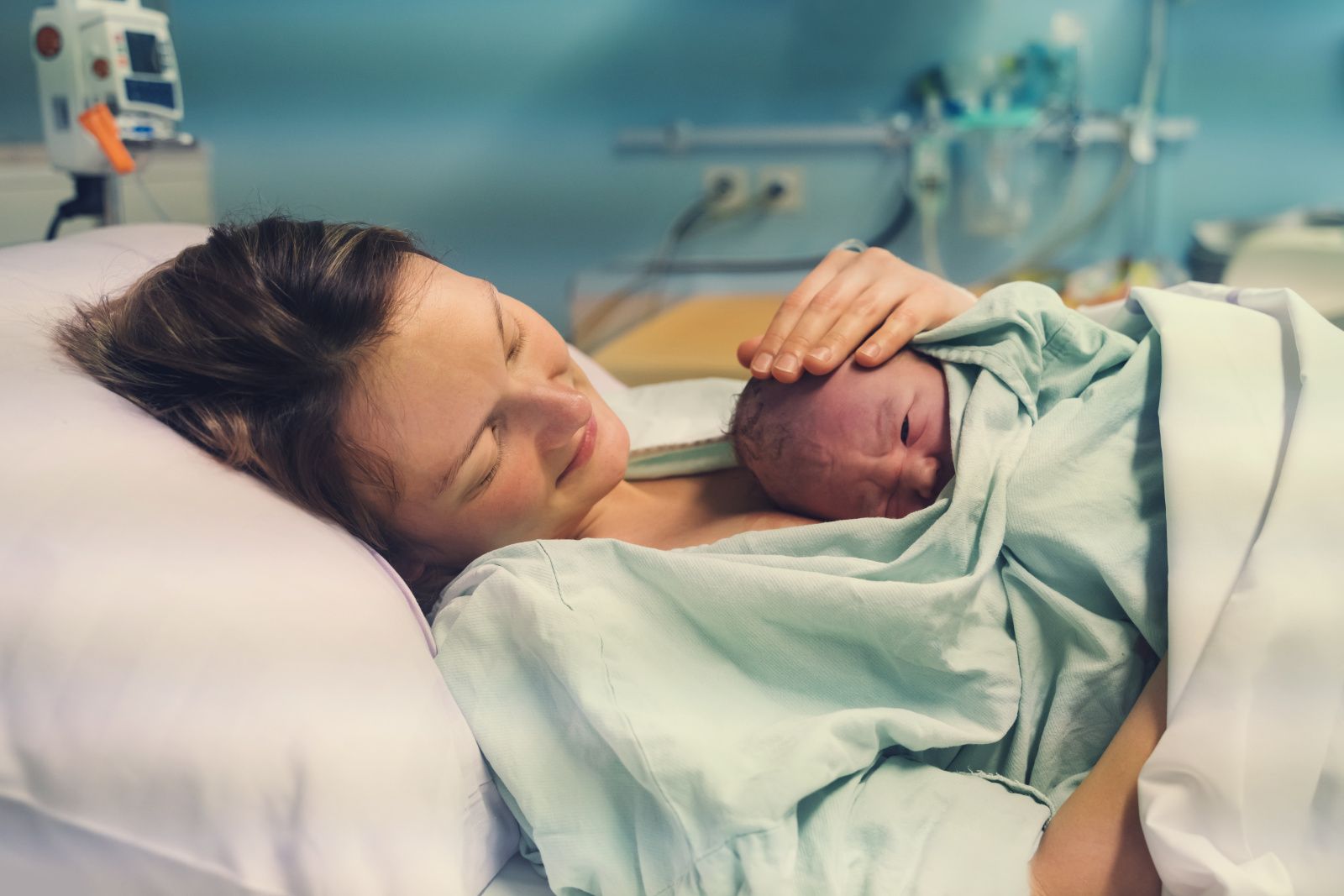Vermehrte Blutungen nach der Geburt kommen häufig vor. Stärkere Blutungen sind seltener und oft unvorhersehbar. Heute stehen neben den Massnahmen der FrauenärztInnen als Therapie Medikamente, Gerinnungsfaktoren, chirurgische Massnahmen und zuletzt Blutkonserven zur Verfügung. Damit soll die Blutung gestoppt und der Blutverlust ersetzt werden. In früheren, bereits publizierten Untersuchungen konnten wir einen starken Zusammenhang zwischen einem Blutgerinnungsfaktor (Faktor 13) und dem nachgeburtlichen Blutverlust nachweisen. In dieser Studie untersuchen wir im nächsten logischen Schritt, ob der Einsatz von Blutgerinnungsfaktor 13 zu einem früheren Zeitpunkt der Blutung als sonst üblich, tatsächlich hilft, den Blutverlust zu reduzieren und damit weitere, mit den Blutungen verbundenen Komplikationen wirksam zu vermeiden.
Ziel der Studie
Ziel ist es zu überprüfen, ob der postpartale Blutverlust und die damit assoziierten Komplikationen durch Substitution von Faktor 13 in einem frühen Stadium der Blutung reduziert werden können.
Informationen EN/FR/ITWer kann teilnehmen?
Schwangere Frauen ab 18 Jahren, die zur Geburt in eine der teilnehmenden Kliniken kommen (neben Hauptstudienzentrum USZ sind das die Universitätsspitäler Basel, Bern, Genf und Lausanne; die Kantonsspitäler Baden, St. Gallen, Winterthur und das Spital Zollikerberg). Von der Studie ausgeschlossen sind Frauen mit geplantem Kaiserschnitt, Mehrlingsschwangerschaften oder bekannten Gerinnungsstörungen.
Ablauf
Sie werden in die Studie aufgenommen, wenn Sie unmittelbar nach der Geburt starke Blutungen haben. In diesem Fall werden Sie nach dem Zufallsprinzip entweder der Studiengruppe (Standardbehandlung plus Gerinnungsfaktor 13) oder der Kontrollgruppe (nur Standard-Behandlung) zugeteilt. Falls Sie keine vermehrte Blutung haben, werden Sie nicht in die Studie aufgenommen ohne weitere Massnahmen.
Im Falle einer starken nachgeburtlichen Blutung messen wir den Blutverlust und vergleichen ihn in beiden Gruppen. Sechs bis neun Wochen nach der Geburt werden wir Sie zusätzlich telefonisch nach Ihrem Gesundheitszustand befragen. Zusätzlich untersuchen wir in einem Zusatzprojekt (nur am USZ und am Kantonsspital St. Gallen), welche Gerinnungsfaktoren vor und nach der Geburt von Bedeutung sind. Für die Entnahme Ihrer Blutproben zu Forschungszwecken sowie die Weiterverwendung Ihrer gesundheitsbezogenen Daten und Ihrer Blutproben brauchen wir Ihre separate Einwilligung. Falls Sie dies nicht wünschen, ist es möglich, dass Sie an der Interventionsstudie mit der möglichen Gabe von Gerinnungsfaktor 13 teilnehmen, aber nicht am Zusatzprojekt mit der Entnahme von Blutproben.
Entschädigung
keine
Original Studienname
Early factor XIII replacement in postpartum hemorrhage: multi-center, randomized, controlled, investigator-initiated trial
BASEC-Nummer
2024-00374
Finanzierung
Diese Studie wird finanziert durch den Schweizerischer Nationalfonds SNF.
Verantwortliche Fachbereiche
- Klinik für Geburtshilfe, Universitätsspital Zürich, USZ
- Frauenklinik, Universitätsspital Basel
- Département femme-mère-enfant, Centre hospitalier universitaire vaudois (CHUV)
- Maternité – Hôpitaux universitaires de Genève (HUG)
- Frauenklinik Kantonsspital St. Gallen
- Klinik für Geburtshilfe & Pränataldiagnostik, Kantonsspital Baden
- Frauenklinik, Spital Zollikerberg
- Universitätsklinik für Frauenheilkunde, Inselspital Bern
- Klinik für Geburtshilfe, Kantonsspital Winterthur
